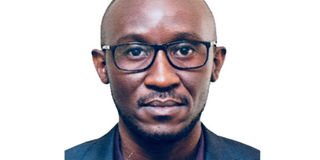Buganda: A dwarf or giant?

As elections draw near, parochial politicians are inculcating a siege mentality amongst different groups, prominent among them - the Baganda. However, the notion that we are marginalised, although easy to believe, is illusory. If anything, we are privileged!
As far back as 1900, the land we now call Uganda was an unequal society where Buganda commanded more prosperity than the rest of Uganda. By the Mathew effect (giving more to those who already have more), Buganda was accorded more political and economic power during colonialism. Subsequently, northern Uganda was designated for the military; western Uganda for agriculture, and south western plus eastern Uganda for unskilled manual labour.
This policy set these regions on different development paths, with Buganda, which was already better off, becoming ever more prosperous. As such, the best of everything ended up in Buganda, from schools and hospitals (both private and public) to opportunities for earning money.
Thus, we access more and better health facilities, schools, and income-generating opportunities compared to people in other regions. We travel shorter distances to receive better education as well as primary and specialised health care. We also have more access to amenities such as roads, electricity, and running water. These advantages ultimately give us an edge.
The concentration of Uganda’s productivity in central Uganda also means that earning money is easier in Buganda. As a result, many non-Baganda must move here, bringing with them additional skills, investments, and cheap labour, which, in turn, make Buganda more prosperous (thus the Mathew effect). So, for a specific skill, one earns more money in Buganda than elsewhere. It is this working with others that makes Buganda a giant, not walking alone.
Take cars for example. Most vehicles in Uganda, irrespective of who owns them, operate within central Uganda. As such, the transport industry and all its feeder businesses (fuel stations, insurance, driving schools, car repair, washing bays, spare-part dealerships, etc.) are concentrated in Buganda. The variety of income-generating opportunities created is a privilege we have, and other regions lack. Now, think of the opportunities created by other industries and their feeder businesses!
Politicians who claim we are marginalised are, therefore, merely driving a wedge between other Ugandans and us to achieve their own political goals. They aren’t concerned with our economic well-being. Their rhetoric of “national cake” is diversionary because the government can only employ a tiny fraction of Ugandans. It’s more meaningful to focus on opportunities in the private sector, where most of us fall anyway.
To this end, we must remember why Buganda became great to begin with. It welcomed other peoples, skilled or not, and dealt with them based on interests (how do I benefit?), not identity (who are you?). What then would we gain by abandoning such a superior mindset and regressing to the identity-based mindset that hindered economic progress elsewhere?
In reality, politicians who preach identity are not acting in our best interests. You see, whereas we are the single biggest group (17 per cent of Uganda’s population), most Ugandans (83 per cent) are non-Baganda. If we focus only on ourselves, we limit ourselves to a mere 17 per cent of potential business relations and cultural exchange.
If we look out to the rest of Uganda, however, we open ourselves to an extra 83 per cent, and even more with East Africa.
Since there is more to gain by working with others, let us shun tribal politicians, remembering that Baganda are not the endangered people of Uganda.
Mr Kibudde is a socio-political thinker
[email protected] Twitter: @kkaboggoza




